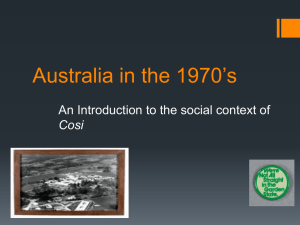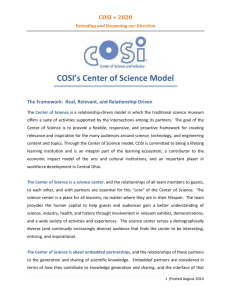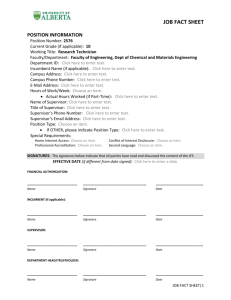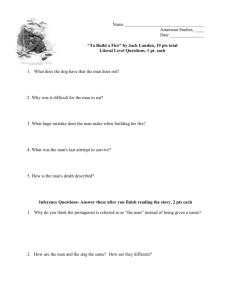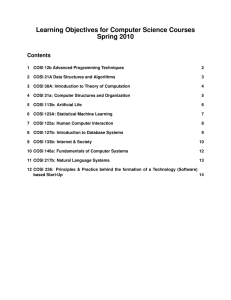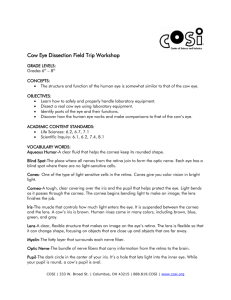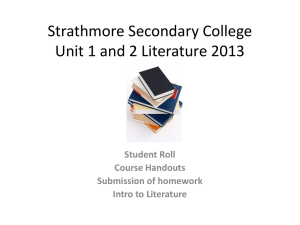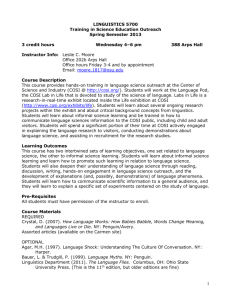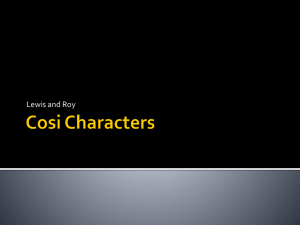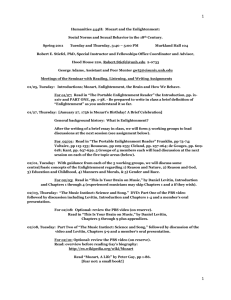Terms and meanings
advertisement
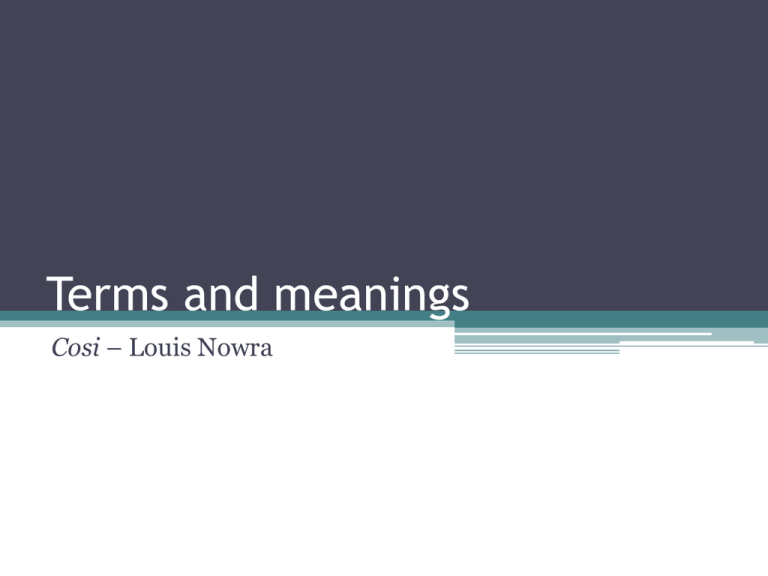
Terms and meanings Cosi – Louis Nowra Cosi fan tutte • Cannot be directly translated but has a number of accepted interpretations • Women behave that way • School for lovers • Women are like that Bourgeois romanticism • a delusion of middle class people, idle wishful thinking, or an empty meaningless convention of the middle class. • Romanticism that belongs to a person whose political, economic, and social opinions are believed to be determined mainly by concern for property values and conventional respectability. • Romaniticism - of, pertaining to, or of the nature of romance; characteristic or suggestive of the world of romance: a romantic adventure. • fanciful; impractical; unrealistic: romantic ideas. • imbued with or dominated by idealism, a desire for adventure, chivalry, etc. • characterized by a preoccupation with love or by the idealizing of love or one's beloved. • displaying or expressing love or strong affection. • ardent; passionate; fervent. Lucy suggests • Anything to do with love such as a play about love is common, trendy, unrealistic, fanciful etc as opposed to the real, significant and important issues of her life such as protesting about the Vietnam War. Metatheatre • theatre that comments on itself. Or theatre that is additional to theatre (Play within the play) Farce • in a play it is broad humour based on exaggerations such as clowning, coincidences, and improbabilities. • There is farce in the basic plot – mentally ill patients performing an opera they cannot sing, or understand the language of with an inexperienced director Ideology • the body of doctrine, myth, belief, etc., that guides an individual, social movement, institution, class, or large group. Intertextuality • the content of a text, such as plot, language, or other reference, has its origin or stimulus in another text – ie the intertextuality of Cosi and Cosi fan Tutte Joie de vive • the joy of life Vicissitudes • changes or variations or alternating phases that occur in the natural order of things. • Vicissitudes of life - successive, alternating, or changing phases or conditions, as of life or fortune; ups and downs: They remained friends through the vicissitudes of 40 years. Projection • psychological – tendency to attribute to another person the ideas, feelings, or sentiments that are actually in oneself. • Which character does this? Poignant • keenly distressing to the feelings: poignant regret. The poignancy of Julie’s death highlights for audiences that recovery from mental illness and addiction is not easy. • keen or strong in mental appeal: a subject of poignant interest. - The play holds poignant interest for audiences. • affecting or moving the emotions: a poignant scene. The play’s ending is poignant Irony • a technique of indicating, as through character or plot development, an intention or attitude opposite to that which is actually or ostensibly stated. • Irony exists in the parallels between lewis’ love life ‘off stage’ and his love life ‘on stage’. On stage the infidelity is treated light heartedly – in ‘character’ of Fiordiligi and Ferrando, it is a trick, and the emotional turmoil is portrayed as comedy. In the blurred lines of Cosi, Julie returns to her true lover just as in Cosi fan tutte. Off stage – Lewis is devastated by Lucy’s infidelity. He is moving out of the house, the relationship is over. A beat • This is a feature of expressionism – (a style of playwriting and stage presentation stressing the emotional content of a play, the subjective reactions of the characters, symbolic or abstract representations of reality, and non naturalistic techniques of scenic design.) • It emphasises the emotional reactions - it intends to underline a key emotional moment – a moment of perception, or awarenss
